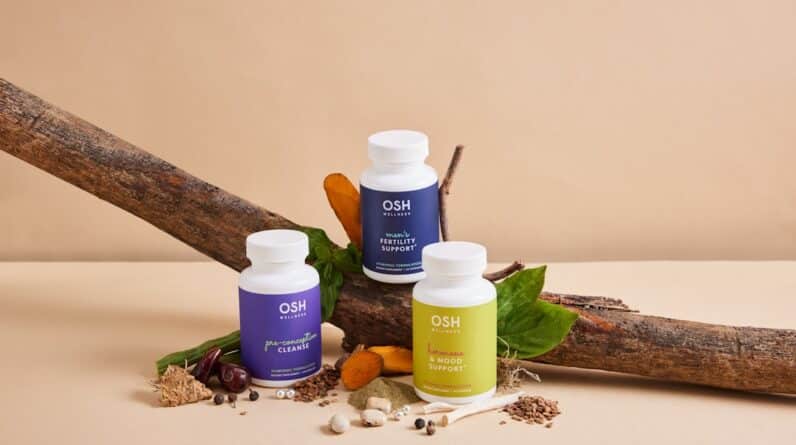Cortisol, often referred to as the “stress hormone,” plays a crucial role in your body’s response to stress. Produced by the adrenal glands, this steroid hormone is essential for various bodily functions, including regulating metabolism, controlling blood sugar levels, and managing inflammation. When you encounter a stressful situation, your body releases cortisol as part of the fight-or-flight response, preparing you to react quickly.
However, while cortisol is vital for survival, its effects can be both beneficial and detrimental depending on the levels present in your body. In normal circumstances, cortisol helps you maintain homeostasis, ensuring that your body functions optimally. It aids in the metabolism of carbohydrates, fats, and proteins, providing you with the energy needed to tackle daily challenges.
Additionally, cortisol plays a role in regulating blood pressure and supporting immune function. However, when cortisol levels remain elevated for prolonged periods, it can lead to a range of health issues. Understanding how cortisol operates within your body is the first step toward managing its levels effectively and ensuring that you maintain a healthy balance.
Key Takeaways
- Cortisol is a hormone produced by the adrenal glands that helps regulate metabolism and respond to stress.
- High cortisol levels can lead to weight gain, high blood pressure, and impaired immune function.
- Lifestyle changes such as regular exercise, adequate sleep, and stress management techniques can help reduce cortisol levels.
- Health supplements like ashwagandha, rhodiola, and phosphatidylserine can help balance cortisol levels.
- Adaptogenic herbs like ginseng, holy basil, and licorice root can help regulate cortisol production and reduce stress.
The Dangers of High Cortisol Levels
The Weight Gain Consequences
One of the most immediate consequences of high cortisol levels is weight gain, particularly around the abdomen. This accumulation of visceral fat can increase your risk of developing serious health conditions such as diabetes and heart disease. You may find that despite your best efforts to eat healthily and exercise, stubborn weight remains a challenge due to hormonal imbalances.
Sleep Disturbances and Cognitive Impairment
Moreover, high cortisol levels can disrupt your sleep patterns, leading to insomnia or poor-quality sleep. When you are unable to get restorative rest, it can create a vicious cycle where fatigue exacerbates stress, further elevating cortisol levels. This lack of sleep can also impair cognitive function, making it difficult for you to concentrate or make decisions.
The Long-Term Risks to Mental Health
Over time, chronic high cortisol can contribute to anxiety and depression, affecting your mental health and overall quality of life. Recognizing these dangers is essential for taking proactive steps toward managing your cortisol levels.
Lifestyle Changes to Reduce Cortisol Levels

Making lifestyle changes is one of the most effective ways to lower cortisol levels and improve your overall health. One of the first steps you can take is to incorporate regular physical activity into your routine. Exercise not only helps reduce stress but also promotes the release of endorphins, which are natural mood lifters.
Whether it’s a brisk walk, yoga session, or a high-intensity workout, finding an activity that you enjoy can make it easier to stay consistent and reap the benefits. In addition to exercise, prioritizing sleep is crucial for managing cortisol levels. Aim for seven to nine hours of quality sleep each night by establishing a calming bedtime routine and creating a sleep-friendly environment.
Limiting screen time before bed and practicing relaxation techniques such as deep breathing or meditation can help signal to your body that it’s time to wind down. Furthermore, maintaining a balanced diet rich in whole foods can support hormonal balance. Focus on incorporating plenty of fruits, vegetables, whole grains, and lean proteins into your meals while minimizing processed foods and added sugars.
Health Supplements to Balance Cortisol Levels
| Supplement | Benefit | Recommended Dosage |
|---|---|---|
| Ashwagandha | Reduces stress and anxiety | 300-500mg per day |
| Rhodiola Rosea | Improves mood and energy levels | 200-600mg per day |
| Phosphatidylserine | Supports cognitive function and reduces cortisol levels | 300-600mg per day |
| Omega-3 Fatty Acids | Reduces inflammation and supports overall health | 1000-2000mg per day |
In addition to lifestyle changes, certain health supplements may help you manage cortisol levels effectively. Adaptogens are a class of herbs that have gained popularity for their ability to help the body adapt to stress and promote balance. Supplements containing ashwagandha, rhodiola rosea, or holy basil may support adrenal function and help regulate cortisol production.
These natural remedies can be particularly beneficial if you’re experiencing chronic stress or fatigue. Another category of supplements worth considering includes omega-3 fatty acids. Found in fish oil and flaxseed oil, omega-3s have been shown to reduce inflammation and may help lower cortisol levels in response to stress.
Additionally, magnesium is an essential mineral that plays a role in over 300 biochemical reactions in the body. It has been linked to improved sleep quality and reduced anxiety, making it a valuable supplement for those looking to manage their cortisol levels effectively.
Adaptogenic Herbs for Cortisol Regulation
Adaptogenic herbs have been used for centuries in traditional medicine systems around the world for their ability to enhance resilience against stressors. These herbs work by modulating the body’s stress response and promoting homeostasis. Ashwagandha is one of the most well-known adaptogens; studies have shown that it can significantly reduce cortisol levels in individuals experiencing chronic stress.
By incorporating ashwagandha into your daily routine—whether through capsules or powder—you may find yourself better equipped to handle life’s challenges. Another powerful adaptogen is rhodiola rosea, which has been shown to improve mental performance and reduce fatigue during stressful situations. This herb may help enhance your mood while simultaneously lowering cortisol levels.
Holy basil is another excellent choice; it has been traditionally used in Ayurvedic medicine for its calming properties. By integrating these adaptogenic herbs into your wellness regimen, you can create a more balanced internal environment that supports healthy cortisol levels.
Vitamins and Minerals for Cortisol Management

Vitamin C: The Stress-Reducing Nutrient
Vitamin C is one such nutrient; it has been shown to lower cortisol levels during stressful situations while also supporting immune function. Incorporating foods rich in vitamin C—such as citrus fruits, bell peppers, and leafy greens—into your diet can provide you with this essential nutrient.
The Importance of B Vitamins for Adrenal Health
B vitamins are another group of vitamins that support adrenal health and help regulate cortisol production. B6, B12, and folate are particularly important for maintaining energy levels and reducing feelings of fatigue associated with high-stress environments.
Foods Rich in B Vitamins for Optimal Health
Foods like whole grains, legumes, eggs, and leafy greens are excellent sources of B vitamins that can help you maintain optimal health while managing stress.
Amino Acids and Other Nutrients for Cortisol Balance
Amino acids are the building blocks of proteins and play a crucial role in various bodily functions, including hormone regulation. One amino acid that stands out in relation to cortisol management is L-theanine. Found primarily in green tea, L-theanine promotes relaxation without causing drowsiness and has been shown to reduce cortisol levels during stressful situations.
By enjoying a cup of green tea or considering L-theanine supplements, you may find it easier to navigate stressful moments with greater ease. Additionally, other nutrients such as zinc and selenium are essential for adrenal function and hormone balance. Zinc supports immune function and helps regulate cortisol production while selenium acts as an antioxidant that protects against oxidative stress.
Including foods rich in these nutrients—such as nuts, seeds, seafood, and whole grains—can contribute to better overall health and more stable cortisol levels.
Consultation with a Healthcare Professional for Cortisol Management
While lifestyle changes and supplements can significantly impact cortisol management, consulting with a healthcare professional is crucial for personalized guidance tailored to your specific needs. A qualified practitioner can help assess your current health status through blood tests or other diagnostic tools to determine if your cortisol levels are indeed elevated or if other underlying issues may be contributing to your symptoms. Working with a healthcare professional allows you to develop a comprehensive plan that addresses not only cortisol management but also any other health concerns you may have.
They can provide recommendations on appropriate supplements or medications if necessary while also guiding you through lifestyle changes that will best suit your individual circumstances. By taking this proactive approach to your health, you empower yourself to achieve better balance in your life while effectively managing cortisol levels for improved well-being.
If you are interested in learning more about natural beauty in women, you may want to check out this article on Health Nutrition Supplements. Understanding the importance of maintaining a healthy lifestyle and incorporating essential vitamins like Vitamin D, as discussed in this article, can also play a significant role in managing high cortisol levels. To further explore what the body needs to be healthy, you can read this informative article on the same website.
FAQs
What is high cortisol and how does it affect health?
High cortisol, also known as hypercortisolism, is a condition where the body produces an excessive amount of the hormone cortisol. This can be caused by chronic stress, Cushing’s syndrome, or certain medications. High cortisol levels can lead to a range of health issues including weight gain, high blood pressure, muscle weakness, and impaired immune function.
What are health supplements for high cortisol?
Health supplements for high cortisol are designed to help regulate cortisol levels and support the body’s stress response system. These supplements may contain ingredients such as ashwagandha, rhodiola, phosphatidylserine, and magnolia bark extract, which have been shown to help lower cortisol levels and reduce the effects of stress on the body.
How do health supplements for high cortisol work?
Health supplements for high cortisol work by targeting the body’s stress response system and helping to regulate cortisol levels. They may do this by supporting the adrenal glands, which are responsible for producing cortisol, or by modulating the body’s response to stress. By helping to balance cortisol levels, these supplements can help reduce the negative effects of high cortisol on health.
Are health supplements for high cortisol safe to use?
When used as directed, health supplements for high cortisol are generally safe for most people. However, it’s important to consult with a healthcare professional before starting any new supplement regimen, especially if you have any underlying health conditions or are taking medications. Some supplements may interact with certain medications or have potential side effects, so it’s important to seek professional guidance.
What are the potential benefits of using health supplements for high cortisol?
Health supplements for high cortisol may offer a range of potential benefits, including helping to reduce stress and anxiety, supporting healthy adrenal function, promoting better sleep, and improving overall well-being. By helping to balance cortisol levels, these supplements may also aid in weight management and support immune function.
How should I choose a health supplement for high cortisol?
When choosing a health supplement for high cortisol, it’s important to look for products that contain clinically studied ingredients and are manufactured by reputable companies. It’s also a good idea to consider your individual health needs and consult with a healthcare professional to determine the most appropriate supplement for you. Additionally, reading customer reviews and seeking recommendations from trusted sources can help guide your decision.






